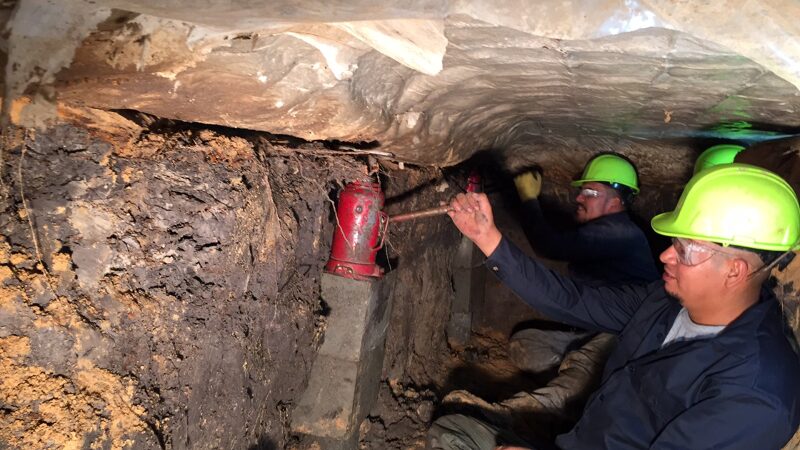Whether your home needs foundation work to fix existing structural damage or to repair or replace a broken pipe underneath your concrete slab, underground tunneling provides a great alternative tocutting through the slab. In short, tunneling involves digging one or more tunnels under your foundation so that professionals can get to the source of the problem and make all the repairs required without causing damage to the structure above.
Even though underground tunneling is sometimes the best repair method due to its advantages, it can also bring along a few disadvantages you should be aware of. To help you determine if this method is the best approach for your home, here are the most important pros and cons you should consider before hiring a contractor for the job.
The Main Advantages of Underground Tunneling
Besides providing a viable alternative to breaking holes through interior floors and concrete slabs, underground tunneling usually delivers the following benefits:
- It’s versatile – From fixing leaks and replacing old pipes underneath a slab foundation to installing or replacing structural supports in a pier and beam foundation under a home that needs leveling, underground tunneling can serve many purposes. In addition, tunneling is the method of choice forlifting a Houston homethat needs protection from flooding.
- It’s non-invasive – Underground tunneling is less invasive than other foundation repair methods. Because most of the work is done outside, occupants can continue to live in the house while the repair is being done. As well, homeowners don’t need to worry about replacing floor finishes and cleaning the entire home, which usually happens when holes have to be drilled into the concrete slab in order to access the problem areas underneath the foundation.
- It doesn’t impact the structural integrity of the home– When it is necessary tocut through the slabof a slab-on-grade foundation in order to reach the area underneath, the entire home could be affected. That’s because, in most cases, the workers aren’t able to access the pipes or structural elements that need to be repaired or replaced unless they remove the dirt underneath the slab as well. Left without adequate support, that area of the slab could collapse. This may weaken the entire structure. Since underground tunneling doesn’t involve cutting through the slab, this type of damage is less likely to occur.
- It’s safe – Underground tunneling is one of the safest foundation repair methods as long as areputable contractor is hiredfor the job. To ensure the integrity of the structure above, a team of experienced workers will always install piers one by one, as the work progresses. This way, the structure on top is never left without proper support.
The Cons of Underground Tunneling
Although there are many advantages tounderground tunneling, this repair method may involve a few drawbacks as well. These are:
Is Tunneling More Costly Than Cutting Concrete Slabs?Tunneling can sometimes be more expensive than cutting through concrete slabs.
- While tunneling is typically less expensive than breaking through concrete slabs, there are situations in which tunneling may cost more. For instance, if you just bought an older Houston home, and the floor needs to be replaced anyway, ripping a hole in the slab and making the repairs required from the inside of your home may be less expensive than tunneling. On the other hand, if cutting through the concrete slab means that you’ll have to move out while work is being done, tunneling may be the least expensive option.
- Tunneling may lead to foundation failure when done incorrectly – One problem with tunneling is that soil compaction equipment may not fit in the small tunnels that workers will dig under your home. This makes it impossible for workers to restore the original density of the soil. When the ground isn’t compacted properly throughout tunnels beneath a slab-on-grade foundation, it may compress unevenly under the weight of the structure. This may cause unsupported voids to develop in different areas under the slab, which could lead tosettlement problemslater on.
Before foundation repair professionals start working on your home, it’s important to have a structural engineer inspect your property in order to determine whether a specific repair method could adversely affect your home. At Allied Foundation, we understand that foundation repairs can pose some concerns for homeowners, our professionals are ready to perform a free evaluation of your foundation, offer you a free estimate, and help you choose the best foundation repair method for your property.
Another important aspect is that most structural repairs that involve tunneling or any other method of repair typically require a special permit. However, when you choose our company for foundation repairs, you can rest assured knowing that our professionals will make all the prior arrangements in order to obtain the permits necessary in advance. Thus, regardless of the foundation problems you suspect, feel free to contact our team of professionalswho have been serving the Houston-Galveston area for more than 40 years!



